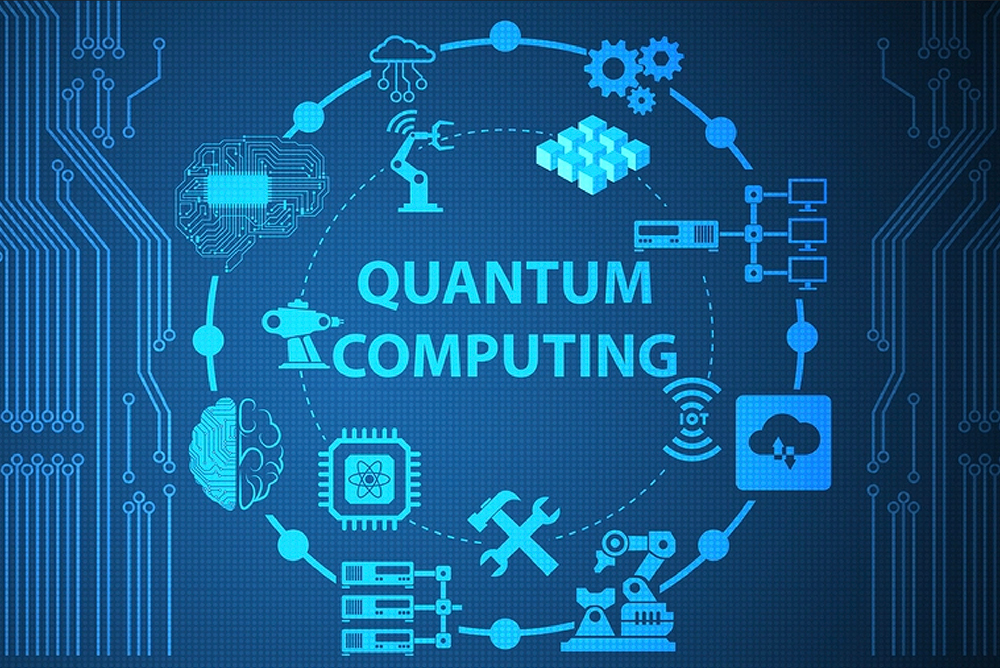You’re not the only one who has heard the fervor surrounding quantum computing and wondered what it’s all about. Although it may sound like something from a science fiction film, quantum computing is real, developing quickly, and poised to change the world in ways we’re just now starting to comprehend.
But first, what is quantum computing, and more significantly, why is it important? Let’s dissect it.
What is quantum computing, first of all?
Information is processed in bits, which are either 0 or 1, by conventional computers, the ones we use daily.
In contrast, quantum bits, or qubits, are used in quantum computers. These can be 0, 1, or both simultaneously (a phenomenon known as superposition).
Additionally, they make use of a different principle known as entanglement, which enables qubits to be coupled in ways that are not possible with conventional bits. Certain calculations can be completed by quantum computers tenfold faster than by conventional computers, thanks to these quantum effects.
🧮 Briefly:
- Computers in the past were 1s and 0s.
- Quantum computers are concurrently 1s, 0s, and all other values.
Quantum Computing: Why Is It Important?
Increasing the speed of your laptop is not the goal of quantum computing. It’s about finding solutions to issues that even the most potent supercomputers cannot solve or that would take centuries to complete.
Here’s where quantum computing might help:
1. Transforming Drug Discovery & Healthcare
Traditional computers have trouble simulating the quantum-level interactions between molecules, whereas quantum simulations can. This might:
- Accelerate the development of new medications
- Customize medication
- Aid in the treatment of complicated illnesses like cancer and Alzheimer’s
2. Cybersecurity Breach (and Repair)
Current encryption techniques could be broken in seconds by quantum computers. Governments, IT firms, and banks are all very concerned about that.
It’s not all terrible, though, because quantum encryption is a byproduct of quantum computing and may eventually render data nearly impenetrable.
3. Addressing Climate Change
Scientists can better combat climate change by using quantum computers to simulate carbon capture methods, improve battery chemistry, and optimize energy infrastructure.
4. Resolving Issues with Logistics and Optimization
Quantum computers can analyze many variables in parallel to develop incredibly efficient solutions in real time, whether they are handling international supply chains, traffic systems, or airline timetables.
5. Risk management and financial modeling
Financial markets involve a lot of data and are complicated and uncertain. Utilizing quantum computing, one can:
- Improve your risk analysis
- Make investing portfolios more efficient
- Find fraud at a deeper level
In 2025, where are we now?
Quantum computing is still in its infancy as of 2025. Businesses like Google, Microsoft, and IBM, and startups like Rigetti and IonQ, are creating increasingly robust and scalable quantum machines.
Although fully functional daily quantum computers are still a ways off, companies are actively investigating “quantum advantage” for particular use cases.
How Does This Affect You?
You can understand the quantum revolution without being a scientist. Quantum computing has the potential to revolutionize a wide range of industries, including healthcare, finance, security, and artificial intelligence, just like the internet did.
Why it’s important
- It is the newest development in computing power.
- It will make previously “unsolvable” problems solvable.
- It will have an effect on international industries and innovation in the future.
Concluding remarks
Nowadays, quantum computing is science in action rather than science fiction. The potential is enormous, even though we are still in the early stages. We will be more equipped to handle the changes that this new frontier will bring the more we comprehend it.



